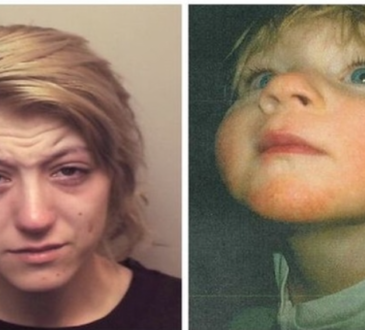
The Alabama Board of Pardons and Paroles meets just 20 miles from the prison where Leola Harris, a 71-year-old woman in end-stage renal failure, has been incarcerated for 19 years. But for Harris, those 20 miles might as well be the moon, as far away as her chances of being released from prison before she dies.
Harris was a first-time offender when she was convicted of murdering a friend in her home. She has been a model of good behavior inside the prison for the almost two decades she has served of a 35-year sentence.
Harris uses a wheelchair for mobility and undergoes dialysis three times a week. She has diabetes. She is unable to go to the bathroom by herself and has spent extended periods in the infirmary of Julia Tutwiler Prison for Women. A nursing home has agreed to take her to live out her final days. But in January, the parole board took just six minutes to deny her parole.
Harris never traveled the 20 miles to the boardroom, where just two members of the three-member board made the decision because the other member was absent. In Alabama, unlike in every other state where parole hearings are held, incarcerated people aren’t permitted to attend their parole hearings, in person or virtually.
While the Alabama Department of Corrections certified that Harris was eligible for medical parole, and both a registered nurse and case manager testified she should be released to the nursing home, the parole board took none of that, nor Harris’ nearly impeccable prison record, into consideration. Her next parole hearing is in 2028. Her attorneys say she will not live to see it.
Under Alabama law, parole board denials are not subject to appeal.
Harris’ experience is the norm these days in Alabama. The rate of incarcerated people being granted parole in the state plunged to a new low in the last fiscal year, when 90% of eligible people’s parole claims were rejected, according to the board’s reports. The Southern Poverty Law Center and a growing number of advocates for incarcerated people say the decline is no coincidence. The board, advocates say, is not following its own guidelines and has made denial of parole the default decision.
Pure injustice,” former Alabama Chief Justice Sue Bell Cobb calls the Harris denial, and the streak of denials of which it is part. Two years ago Cobb, appalled at the plummeting release rates and the way parole hearings are conducted – attorneys are given four to six minutes to make their case and there is no possibility of appeal – formed Redemption Earned, a nonprofit law firm that represents elderly and ill incarcerated adults it deems worthy of transition to nursing homes. Cobb and Redemption Earned staff are representing Harris at no cost
SPLC INITIATIVES
Harris was convicted of murder for the 2001 killing of Lennell Norris, who was found dead of a gunshot wound at her kitchen table. Harris testified at her trial that Norris was a friend who would often come by her house at night but maintained she did not shoot him and that someone else was in the house that night. She passed a lie detector test denying she killed Norris. Since her incarceration, she has received two minor infractions, none within the past 12 years.
Her parole was opposed by Victims of Crime and Leniency, an advocacy group for victims and their families. The group sends volunteers to testify against nearly every person up for parole in Alabama. A representative of the state attorney general’s office does the same.
The SPLC’s Criminal Justice Reform project has been strategizing on how to improve the prospects of incarcerated people eligible for parole in the state.
“Our advocacy dates back to 2018, when our concerns about the rampant violence in overcrowded prisons brought to light a disturbing trend in the number of paroles granted by the parole board,” said Tafeni English-Relf, the SPLC’s Alabama state office director. “Our legal team recognized that the state’s unjust parole system had a huge impact on prison overcrowding and the increased violence that accompanied it, coupled with insufficient staff to protect people in prison.”
During the pandemic, the SPLC launched an initiative to assist incarcerated people eligible for and worthy of parole. In 2021, the SPLC partnered with students from Columbia Law School, meeting with clients, their families and community members to map the best path toward successful parole hearings.
That effort ended in February 2023. But starting this fall, the SPLC hopes to work with Alabama law schools to provide incarcerated people with representation before and at their parole hearings.
Despite the work, SPLC Senior Staff Attorney Ashley Light called the prospects of almost any incarcerated person in Alabama being granted parole “pretty hopeless right now.”
“The current parole board doesn’t provide any hope for anyone who is incarcerated,” Light said. “We will get phone calls and talk to people who are up for parole, and the first conversation has to be, it is extremely likely you will be denied, regardless. You have people who are trying their best to stay out of trouble in these facilities, to stay off drugs, to stay out of the violence that consumes the prisons, in the hope there is some possibility of parole, and the door just gets slammed in their face and they are told no, we are not even considering you again for five years. I don’t think this system is working whatsoever.”
PRISON OVERCROWDING
Alabama’s prisons have long been among the most violent and overcrowded in the country. And the circumstances under which many offenders, particularly Black and Brown people, are sentenced in the state have come under increasing scrutiny.
But the growing evidence of disparate treatment faced by people and communities of color has run headlong – particularly in states like Alabama with Republican-majority legislatures – into a get-tough-on-crime ethos. As a result, even as prison populations balloon, aggressive sentencing laws dating to the American movement toward mass incarceration in the 1980s remain in place.
Further exacerbating the situation in Alabama, a shocking crime four years ago led directly to changes at the state’s parole board that advocates say have led to an explosion in parole denials. In November 2017, a man named Jimmy O’Neal Spencer was released on parole. Eight months later, he was charged with killing three people, including a 7-year-old boy and his great-grandmother, in the North Alabama town of Guntersville.
At the time, the parole board had been implementing a series of reforms, using risk-based assessments and considering factors such as the age and support systems of incarcerated people. From fiscal year 2013 to 2018, Alabama’s parole grant rate steadily grew. This increase in paroles, as well as Alabama’s 2015 sentencing reforms, led to a decrease in the state’s prison population.
But the political fallout of the brutal killings by Spencer was immense. Conservatives were outraged that despite being in prison for a violent crime, Spencer had been released, and they sought to tie the decision in his case to the parole reforms. Then-newly elected Republican Gov. Kay Ivey summoned lawmakers to an emergency session where the Legislature killed a proposed sentencing reform and approved a $1.3 billion proposal to build more prisons. In 2019, calling Spencer’s parole “a grievous error,” Ivey signed legislation overhauling the parole board appointment process.
The legislation allowed the governor to appoint the director of the three-person board, made it mandatory that at least one member be a current or former law enforcement officer and set new parole guidelines for people convicted of violent crimes.




